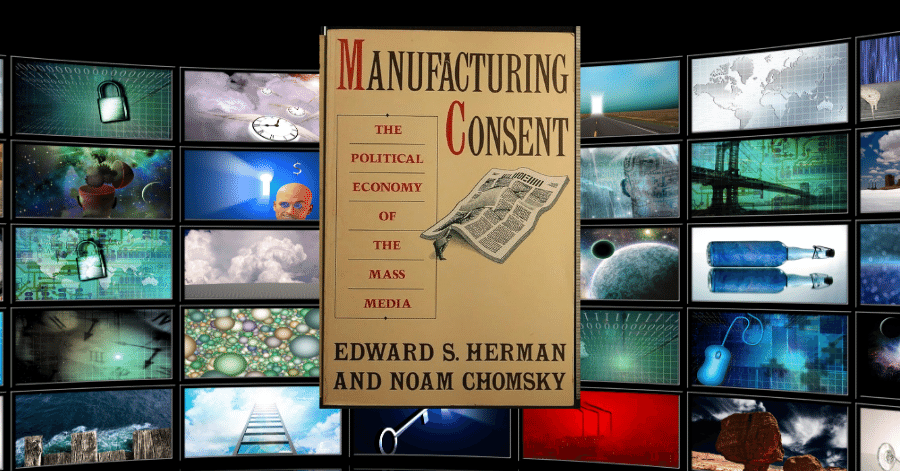Manufacturing Consent Revisited: Chomsky’s Unyielding Critique of Media Influence in the Digital Age

The 1988 book “Manufacturing Consent,” which Noam Chomsky wrote with Edward S. Herman, is a deep look at how the media affects public opinion and political debate. Chomsky’s criticism, which has roots in the late 20th century, is still relevant in the digital age. It helps us understand how media influence works and how it has long-lasting effects.
At the heart of Chomsky’s case is a challenge to the media’s false idea that people have power in politics. Chomsky says that it doesn’t matter if the U.S. is called a democracy or a republic; both ideas may be false because of a media system that fakes political involvement while actually working for powerful groups in the government and the private sector.
Chomsky and Herman’s “Five Filters” give us a way to think about how agreement is made. Media control, which is based on making money, puts the needs of certain groups ahead of everyone else’s, shaping stories to make sure they make money. Media companies depend on advertising for their money, and marketers want to reach audiences, which turns people into products for sale.
It is still a sobering critique of Chomsky’s claim that media is not a check on power but rather becomes involved because it has close ties to powerful institutions. People who question established power structures run the risk of being pushed to the edges and losing the access they need to do good investigative news. Using a “flack machine” to discredit stories that aren’t handy shows how vulnerable the media is to pressure from outside sources.
Chomsky says that finding a shared enemy, or a threat that brings people together, is necessary for manufacturing consent. This strategy works to control public opinion and strengthen a shared way of thinking, whether it’s used to fight communism, terrorism, or immigration. Even though Chomsky’s analysis came from a time when traditional media ruled, it can still be heard today on social media, where business interests and shaping of stories come up in new ways.
The book will live on because it has lessons that can be used in today’s changing media world. Chomsky’s exclusion from popular political discussion and the book’s use of old examples have not made it less important. “Manufacturing Consent” is still an important book for people who want to understand how stories are made, managed, and spread in a world with a lot of information and fast-changing media.
Though the book isn’t talked about as much as it used to be, Chomsky’s ideas are still very important and make us want to keep looking into the things that shape public opinion. It is very clear in “Manufacturing Consent” how the media is involved in profit-making, creating a shared enemy, and being complicit. This book will help you always understand how media, power, and public opinion are connected. As the media environment changes all the time, Chomsky’s work is a timeless reminder of how important it is to be careful when navigating the complicated terrain of how information is spread and understood.






